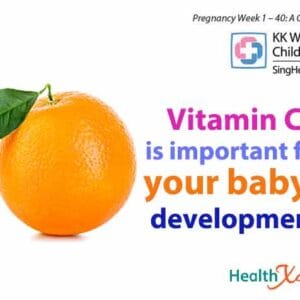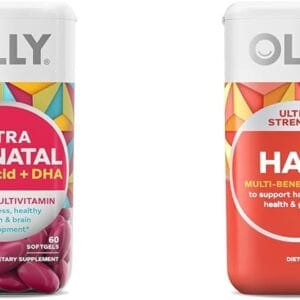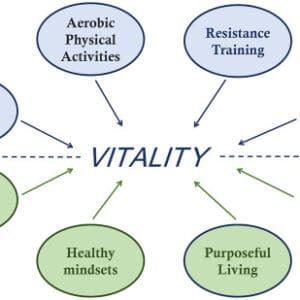When it comes to weight loss, many people focus on diet and exercise, but vitamins and supplements can also play a crucial role. Certain vitamins can help boost metabolism, suppress appetite, and increase energy levels, making it easier to stick to a weight loss plan. With so many options available, it’s essential to identify the most effective vitamins for weight loss. This article will explore the vitamins that have been proven to support weight loss efforts, helping you achieve your goals and maintain a healthy weight in the long term, naturally and effectively.

Vitamins That Boost Metabolism and Support Weight Loss
When it comes to losing weight, a well-balanced diet and regular exercise are essential. However, certain vitamins can also play a crucial role in boosting metabolism and supporting weight loss efforts. These vitamins help the body function optimally, ensuring that it can efficiently burn fat and maintain muscle mass.
Vitamin D: The Fat-Burning Vitamin
Vitamin D is not just essential for bone health; it also plays a significant role in weight management. Research has shown that individuals with adequate levels of vitamin D tend to have an easier time losing weight compared to those who are deficient. Vitamin D helps regulate body weight by influencing the expression of genes involved in fat storage and metabolism. | Vitamin D Benefits | Description | | — | — | | Boosts Metabolism | Vitamin D helps increase metabolic rate, enhancing the body’s ability to burn fat. | | Regulates Fat Storage | Vitamin D influences genes that control fat storage, potentially leading to reduced body fat. | | Improves Insulin Sensitivity | Vitamin D helps regulate blood sugar levels and improves insulin sensitivity, reducing the risk of metabolic disorders. |
Vitamin B12: Energy and Metabolism
Vitamin B12 is crucial for energy production and metabolism. It plays a key role in the metabolism of fatty acids and amino acids, helping the body convert fat into energy. A deficiency in vitamin B12 can lead to fatigue, which can hinder weight loss efforts. | Vitamin B12 Benefits | Description | | — | — | | Enhances Energy Production | Vitamin B12 is essential for producing energy from the food we consume. | | Supports Metabolic Processes | Vitamin B12 is involved in the metabolism of fats and proteins, aiding in weight management. | | Reduces Fatigue | Adequate levels of vitamin B12 help reduce fatigue, making it easier to stick to a weight loss regimen. |
Vitamin C: Antioxidant and Metabolism Booster
Vitamin C is well-known for its antioxidant properties, but it also plays a role in boosting metabolism. It helps in the production of carnitine, a compound that assists in transporting fatty acids to the mitochondria, where they can be burned for energy. | Vitamin C Benefits | Description | | — | — | | Antioxidant Properties | Vitamin C protects cells from oxidative stress, promoting overall health. | | Boosts Metabolism | Vitamin C is involved in the production of carnitine, enhancing fat metabolism. | | Supports Immune Function | Vitamin C is crucial for a healthy immune system, reducing the risk of illness that could derail weight loss efforts. |
Thiamin (Vitamin B1): Carbohydrate Metabolism
Thiamin, or vitamin B1, is essential for carbohydrate metabolism. It helps convert carbohydrates into energy, ensuring that the body’s energy needs are met. A deficiency in thiamin can lead to decreased metabolism and increased fatigue. | Thiamin Benefits | Description | | — | — | | Carbohydrate Metabolism | Thiamin is crucial for converting carbohydrates into energy. | | Energy Production | Thiamin helps in the production of ATP, the energy currency of the body. | | Nervous System Function | Thiamin is important for the health of the nervous system, which regulates various bodily functions. |
Riboflavin (Vitamin B2): Energy Production and Metabolism
Riboflavin, or vitamin B2, is another B vitamin that plays a significant role in energy production and metabolism. It is involved in the metabolism of fats, drugs, and steroids, and helps in the conversion of carbohydrates into energy. | Riboflavin Benefits | Description | | — | — | | Energy Production | Riboflavin is essential for the production of energy from the food we eat. | | Antioxidant Properties | Riboflavin has antioxidant properties, helping protect cells from damage. | | Metabolic Processes | Riboflavin is involved in various metabolic processes, including the metabolism of fats and steroids. |
What is the best vitamin to help you lose weight?

The best vitamin to help you lose weight is a topic of ongoing debate among health experts. While there is no single vitamin that can guarantee weight loss, certain vitamins and nutrients can support a healthy weight loss journey.
Vitamins that Support Weight Loss
Certain vitamins play a crucial role in supporting weight loss by boosting metabolism, suppressing appetite, and enhancing fat burning. Some of the most effective vitamins for weight loss include:
- Vitamin D, which is essential for maintaining a healthy weight and has been shown to aid in weight loss by regulating appetite and improving insulin sensitivity.
- B Vitamins, particularly B12, which plays a key role in energy production and can help increase metabolism, leading to weight loss.
- Vitamin C, which is important for fat oxidation and can help reduce oxidative stress, making it easier to lose weight.
How Vitamins Aid in Weight Loss
Vitamins can aid in weight loss by supporting metabolic function, reducing inflammation, and improving overall health. A well-balanced diet that includes a variety of whole foods can provide adequate amounts of essential vitamins and nutrients. Some key ways vitamins support weight loss include:
- Enhancing metabolic rate, allowing the body to burn more calories at rest.
- Regulating hunger hormones, reducing the likelihood of overeating.
- Supporting healthy gut bacteria, which is essential for optimal nutrient absorption and weight management.
Food Sources of Weight Loss Vitamins
While supplements can be helpful, it’s always best to get essential vitamins and nutrients from whole foods. Some of the best food sources of weight loss vitamins include:
- Fatty fish, such as salmon, which is rich in Vitamin D and omega-3 fatty acids, both of which support weight loss.
- Leafy greens, such as spinach, which is high in B Vitamins and Vitamin C, making it an excellent addition to a weight loss diet.
- Nuts and seeds, such as almonds and sunflower seeds, which are rich in Vitamin E and healthy fats, supporting overall health and weight management.
What can I take every day to help lose weight?

To help with weight loss, various supplements and nutrients can be considered as part of a daily regimen. It’s essential to understand that while these can support weight loss efforts, they should be used in conjunction with a healthy diet and regular exercise. Some popular options include protein supplements, which can help increase satiety and boost metabolism, and fiber supplements, which can aid in feeling fuller for longer and supporting healthy digestion.
Nutritional Supplements for Weight Loss
When considering nutritional supplements for weight loss, it’s crucial to focus on those that have been backed by scientific evidence. Green tea extract is one such supplement that has been shown to have a positive effect on weight loss due to its catechin content, particularly EGCG, which may help increase metabolism and fat burning. Other supplements like conjugated linoleic acid (CLA) and garcinia cambogia are also popular, though their effectiveness can vary from person to person. Key considerations include:
- Green tea extract for its metabolic benefits
- Protein powder to support muscle mass and satiety
- Probiotics for gut health and digestive efficiency
Lifestyle Changes to Enhance Weight Loss
While supplements can be helpful, they are most effective when combined with significant lifestyle changes. Adopting a balanced diet that is rich in vegetables, fruits, and lean proteins can provide essential nutrients while keeping calorie intake in check. Regular physical activity, including both aerobic exercises and strength training, is also vital for burning calories and building muscle. Some key lifestyle adjustments include:
- Incorporating more physical activity into your daily routine
- Eating a balanced diet with plenty of whole foods
- Ensuring adequate sleep to support weight regulation
Additional Considerations for Effective Weight Loss
Beyond supplements and lifestyle changes, other factors can influence the effectiveness of a weight loss regimen. Hydration is crucial, as sometimes thirst can be mistaken for hunger, leading to unnecessary snacking. Additionally, being mindful of portion sizes and eating regular meals can help maintain a healthy metabolism and prevent overeating. Key points to consider are:
- Drinking plenty of water throughout the day
- Being mindful of portion sizes to avoid overeating
- Eating regular, balanced meals to support metabolic health
Frequently Asked Questions
What are the best vitamins for weight loss?
The best vitamins for weight loss are those that boost metabolism, suppress appetite, and enhance fat burning. Some of the most effective vitamins for weight loss include Vitamin D, B Vitamins, and Vitamin C. These vitamins play a crucial role in regulating energy production, supporting thyroid function, and reducing inflammation. By incorporating these vitamins into your weight loss plan, you can accelerate your metabolism, increase fat loss, and achieve your weight loss goals more efficiently.
How do B Vitamins support weight loss?
B Vitamins are essential for energy production and play a crucial role in weight loss. They help convert fat into energy, regulate appetite, and support metabolism. Specifically, B6, B9, and B12 are involved in fat metabolism, energy production, and nerve function. By ensuring adequate intake of B Vitamins, individuals can enhance their metabolic rate, reduce fatigue, and support their weight loss efforts. A deficiency in B Vitamins can lead to fatigue, weakness, and poor metabolism, making it more challenging to lose weight.
Can Vitamin D help with weight loss?
Vitamin D has been shown to play a significant role in weight regulation and weight loss. Research suggests that Vitamin D deficiency is associated with obesity and weight gain. Vitamin D helps regulate appetite, support fat loss, and improve insulin sensitivity. By maintaining adequate Vitamin D levels, individuals can enhance their weight loss efforts, improve overall health, and reduce the risk of chronic diseases. Furthermore, Vitamin D has been shown to inhibit the formation of new fat cells, making it an essential nutrient for those seeking to lose weight.
Are there any vitamins that can help reduce cravings?
Certain vitamins, such as Vitamin C and Chromium, have been shown to help reduce cravings and support weight loss. Vitamin C plays a role in regulating appetite and reducing cravings for unhealthy foods. Additionally, Chromium helps regulate blood sugar levels, reduce cravings for carbohydrates, and support weight loss. By incorporating these vitamins into your diet, you can better manage cravings, make healthier food choices, and stay on track with your weight loss goals.














